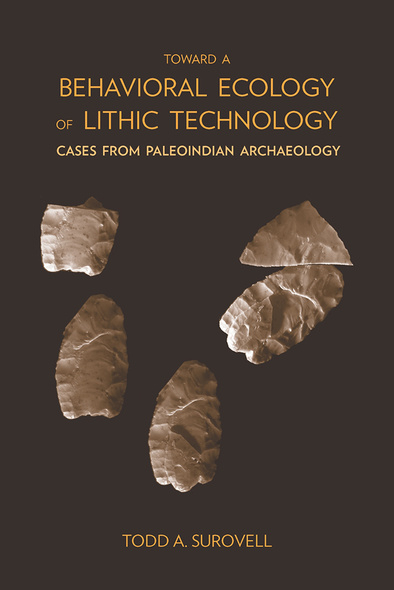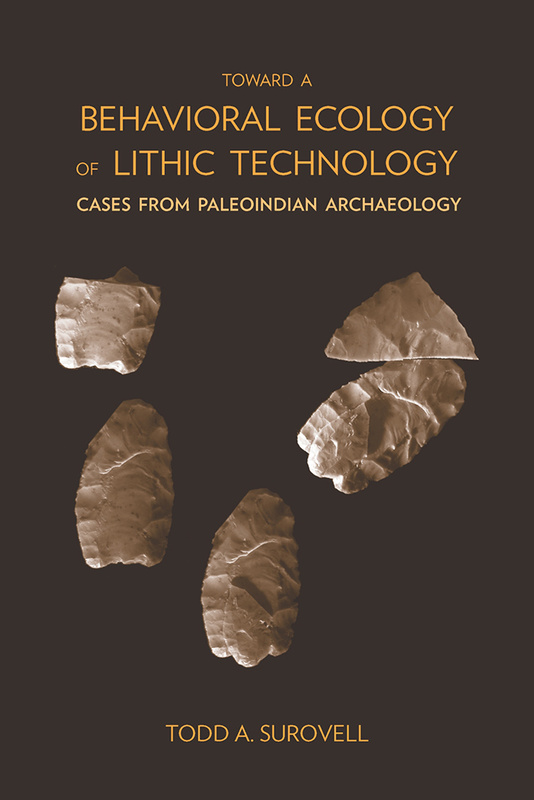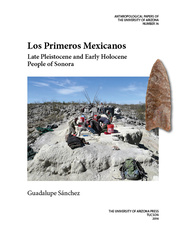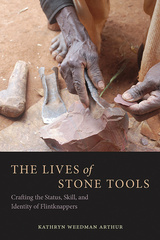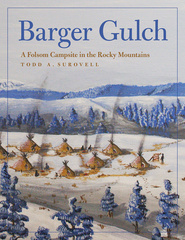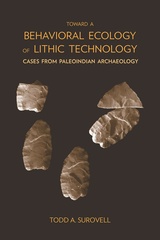Toward a Behavioral Ecology of Lithic Technology
Cases from Paleoindian Archaeology
The University of Arizona Press
Modern humans and their hominid ancestors relied on chipped-stone technology for well over two million years and colonized more than 99 percent of the Earth's habitable landmass in doing so. Yet there currently exist only a handful of informal models derived from ethnographic observation, experiments, engineering, and "common sense" to explain variability in archaeological lithic assemblages.
Because the fundamental processes of making, using, and discarding stone tools are, at root, exercises in problem solving, Todd Surovell asks what conditions favor certain technological solutions. Whether asking if a biface should be made thick or thin or if a flake should be saved or discarded, Surovell seeks answers that extend beyond a case-by-case analysis. One avenue for addressing these questions theoretically is formal mathematical modeling.
Here Surovell constructs a series of models designed to link environmental variability to human decision making as it pertains to lithic technology. To test the models, Surovell uses data from the analysis of more than 40,000 artifacts from five Rocky Mountain and Northern Plains Folsom and Goshen complex archaeological sites dating to the Younger Dryas stadial (ca. 12,600-11,500 years BP). The primary result is the production of powerful new analytical tools useful to the interpretation of archaeological assemblages.
Surovell's goal is to promote modeling and explore the general issues governing technological decisions. In this light, his models can be applied to any context in which stone tools are made and used.
Because the fundamental processes of making, using, and discarding stone tools are, at root, exercises in problem solving, Todd Surovell asks what conditions favor certain technological solutions. Whether asking if a biface should be made thick or thin or if a flake should be saved or discarded, Surovell seeks answers that extend beyond a case-by-case analysis. One avenue for addressing these questions theoretically is formal mathematical modeling.
Here Surovell constructs a series of models designed to link environmental variability to human decision making as it pertains to lithic technology. To test the models, Surovell uses data from the analysis of more than 40,000 artifacts from five Rocky Mountain and Northern Plains Folsom and Goshen complex archaeological sites dating to the Younger Dryas stadial (ca. 12,600-11,500 years BP). The primary result is the production of powerful new analytical tools useful to the interpretation of archaeological assemblages.
Surovell's goal is to promote modeling and explore the general issues governing technological decisions. In this light, his models can be applied to any context in which stone tools are made and used.
This is possibly the first systematic study of the lithic record from a manageable time-space unit that treats rocks like ecologists and economists treat food: as a consumable resource, not an end product. Surovell's highly original study will be a landmark in lithic analysis and Palaeoindian studies that all serious practitioners should read.'—Cambridge Archaeological Journal
Todd Surovell is an assistant professor of anthropology at the University of Wyoming. His research interests are in behavioral ecology, hunter-gatherer studies, mathematical modeling, lithic technology, and Paleoindian archaeology.
Preface
Acknowledgments
1 Toward a Behavioral Ecology of Lithic Technology
2 Late Pleistocene Foragers of the Northern Plains and Rocky Mountains
3 Occupation Span and Residential Mobility
4 The Reoccupation Problem
5 Stone Age Supply-Side Economics
6 Bifaces, and So On: Modeling the Design of Tools and Toolkits
7 On the Optimal Production of Trash
8 Mathematics, Lithic Technology, and Paleoindians
Appendix: Site Occupancy and Camp Area
Notes
References
Index

